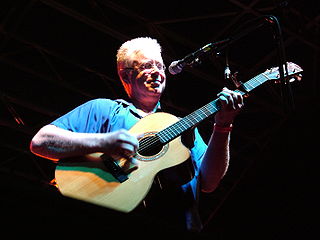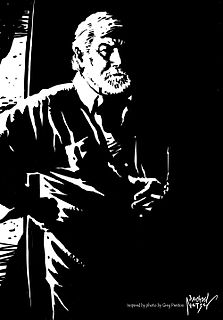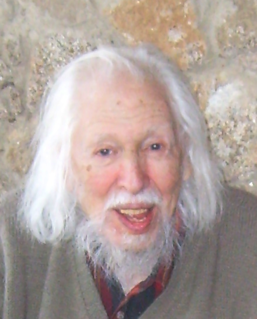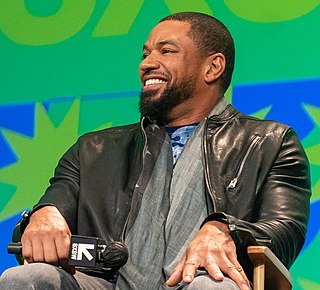A Quote by Bruce Cockburn
The second half of the '60s really was a kind of learning period, in terms of writing, for me.
Related Quotes
Something I always wanted to do, to capture that later half of the '70s. It's like the early half of the '70s is still the '60s, in that there's still kind of a playfulness and inventiveness in terms of design and the things that were going on in the culture. The second half, it got much more commodified. It's possibly the ugliest era of architecture and clothes and design in the entire 20th century, from 1975 to '81 or '82.
What, are you totally psycho?" I shouted. "Maybe I am!" he screamed back at me. "Maybe that's just what I am. Maybe I'm that quiet guy who suddenly goes nuts and then you find half the neighborhood in his freezer." I gotta admit, that one stumped me for a second - but only for a second. "Which half?" I asked. "Huh?" "Which half of the neighborhood? Could you make it the people on the other side of Avenue T, because I never really liked them anyway.
So you have the challenge of just learning the lines, period, and not only learning them, but learning them to the extent that you assimilate them, so that you're not worried about what the next word is coming out of your mouth when it comes to doing a scene. And you're also in the trenches with the writers, just in the wonderful kind of back and forth of how is it best to say something, even if it involves four or five words. I love that kind of thing.




































